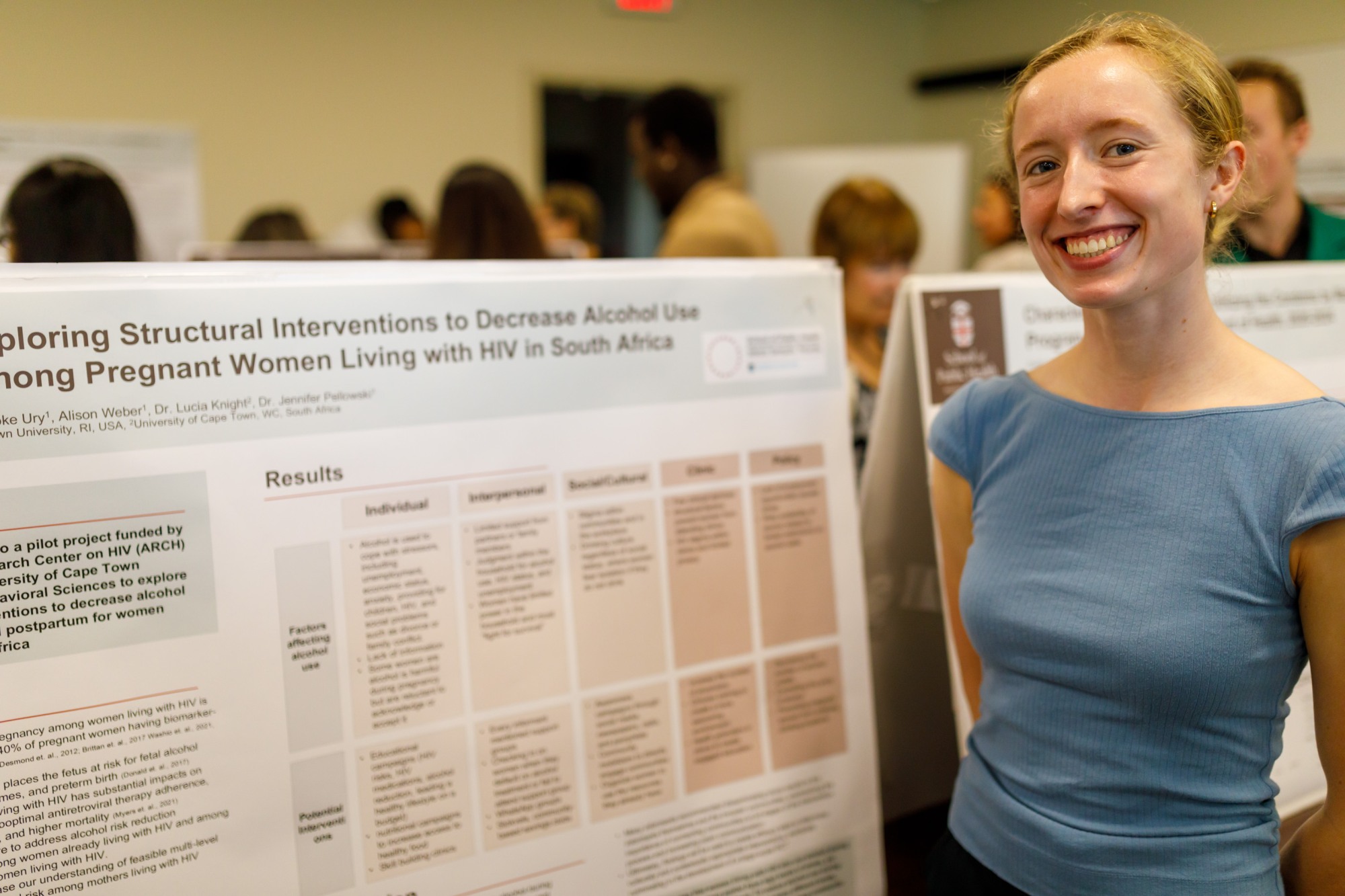Brooke Ury
Poster: Exploring Structural Interventions for Decrease Alcohol Use Among Pregnant Women Living with HIV in South Africa
“For my project at Brown’s Alcohol Research Center on HIV (ARCH), I collaborated with the University of Cape Town's Division of Social and Behavioral Sciences to explore potential structural interventions to decrease alcohol use during pregnancy and postpartum for women living with HIV in South Africa. My role involved conducting literature reviews and interviewing community leaders to identify effective interventions. Based on previous research, we aimed to develop a multi-level approach. Much of the work focused on exploring various stages of potential interventions to ensure comprehensive support for this population.”
Julia Braeunig
Poster: Applied Data Analytics in Economic Consulting and Litigation Support
“For my project this past summer, I worked with the small economic consulting firm, Greylock McKinnon Associates. Although the firm has various practice areas, in recent years it has focused on representing plaintiffs in cases against large pharmaceutical companies. Unfortunately, due to confidentiality, I’m unable to disclose specific details about the cases. However, we were involved in several lawsuits against companies on behalf of consumers.
Our work was heavily data-driven, involving extensive data analysis, economic consulting and metric modeling, all aimed at ensuring high-quality outcomes. We conducted research in therapeutic spaces and identified key players and trends in those areas. Throughout the project I had the opportunity to interact with numerous clients and stakeholders, which was an enriching experience. The project itself was fascinating and offered insights into the intersection of epidemiology, economics and healthcare litigation.”
Chloe Bittelman
Poster: Designing Post-Program Materials for ProMotion+: Testing the Feasibility of a Physical Activity Intervention Among Older Adults with Elevated Depression Levels
“For my MPH Practicum project, I worked within Brown’s Center for Health Promotion and Health Equity (CHPHE) on ProMotion+, which is an early-stage clinical trial, testing the feasibility of a physical activity promotion program for adults with depressive symptoms.
This research study is currently in its feasibility phase, which means we’re gathering preliminary data and feedback before launching a larger-scale randomized controlled trial. The focus is on older adults with elevated depression levels, particularly because physical activity tends to decrease in this population, making them more vulnerable. The goal is to use this initial phase to refine and advance future research interventions.
After graduation, I plan to pursue a job in public health, ideally in an administrative role. I’m interested in working in environments like doctors’ offices or administrative organizations that focus on facilitating change and improving interactions with and support for people.”
Joseph Leszczynski
Poster: Mixed Methods in Analyzing Hand Hygiene Audit System at Brown University Health
“I am in the applied epidemiology concentration, and over the summer I had the opportunity to work at Brown University Health—formerly Lifespan Hospital—in their Infection Prevention Department. My role involved evaluating and analyzing their hand hygiene audit system, with the goal of reducing hospital-acquired infections. We know from research that hand hygiene is crucial in preventing hospital-acquired infections and holding the hospital accountable.
The accountability system is essential for maintaining compliance. So I implemented a hand culture initiative among hospital volunteers to assess the impact of hand hygiene from a microbiological perspective. Additionally, I evaluated the current audit system, focusing on the comfort levels of hospital staff and volunteers in providing feedback and holding each other accountable.
Lastly, I worked on designing the patient and visitor audit system, which was crucial for cross-checking data against the internal audit system. This experience was invaluable in understanding the importance of data-driven approaches to infection prevention.”








